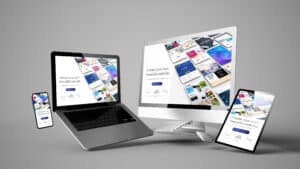Wales’ Women in Business: Insights from The Prince’s Trust Director and Local Entrepreneur Unveil Challenges and Solutions

<?xml encoding=”utf-8″ ?????????>
International Women’s Day is a global day celebrating the social, economic, cultural, and political achievements of women, yet a lot more still needs to boost opportunities for young girls and tackle gender equality in the workplace.
Fortunately Sarah Jones and Jeannette Linfoot, two businesswomen who have worked hard throughout their careers to tackle such issues, and inspire women of all ages to embrace entrepreneurship, were on hand to give us their views
From acing tennis programmes to spearheading sports partnerships in sectors as diverse as the national governing body for netball in Wales, Welsh Rugby Union and grassroots gymnastics, former international tennis player, Sarah, is now raising the goal posts for young women as the Director of Delivery at The Prince’s Trust Cymru. A charity dedicated to improving the lives of young, disadvantaged people aged 11-30, it’s a role that’s allowed Sarah to empower thousands of women to achieve through access to employment, entrepreneurship and education.
Equally as dedicated to building young women’s futures is Jeannette Linfoot, the host of the business podcast Brave, Bold, Brilliant, and a high performing corporate CEO turned entrepreneur. Jeannette was formerly the CEO of Saga Travel Division & TUI MD Emerging Markets, where she operated a diverse portfolio of travel businesses in Russia, Ukraine, China, India, Brazil and South America. She now leverages her 30+ years’ global professional experience to advise both SMEs and executive boards.
So, how much progress have we made as a society when it comes to female empowerment? Are companies doing enough to encourage young women to enter male-dominated roles or strive for senior level positions, for example?
“Although some progress has certainly been made”, says Jeannette, “there’s still a long way to go, particularly when it comes to ensuring that young women and girls are capable of starting out their careers, aware of the wide range of options available to them”.
“It can be intimidating to explore traditionally male-dominated sectors”, she explains, “with girls often still inadvertently pushed away from these areas in schools”.
According to the entrepreneur, businesses need to do more to combat this, following in the footsteps of companies that are already making strides in their equality efforts.
“There are now some great organisations out there looking to raise awareness, create equality in opportunity and encourage women who are interested in achieving success in industries that may have previously seemed closed off to them”, says Jeannette.
“One such example is EasyJet, which has attempted to tackle the lack of women in aviation by implementing programmes to attract, train and secure more female pilots. Likewise, travel company, Celebrity Cruises, has set a trailblazing example for women in maritime, with the only all-female crew on the Bridge under the leadership of Captain Kate. Both organisations have incredible CEOs, who truly champion the need for diversity at all levels”.
Does a company having a male CEO still have an impact?
“Good CEOs exist, regardless of gender”, responds Jeannette. “However, there’s still a lot more to be done at Board level when it comes to equality. Just 6% of the top 100 companies in the UK have female CEOs, highlighting the fact that there are still barriers to be overcome when it comes to nurturing women’s ambitions – not to mention the limitations in place insofar as women’s access to training”.
“Even when these high-ranking opportunities can be accessed”, Jeannette continues, “women are still combatting problems that should long have been abolished. For instance, larger companies tend to respond less flexibly to women returning to work after childbirth than SMEs, perhaps explaining why, in the entrepreneurial space, it’s often easier for women to go out on their own and start their own business than it is to progress in a large corporate”.
Organisations like The Prince’s Trust are currently working to change this. In fact, the Trust has been a fantastic supporter of International Women’s Day so far, with the #ChangeAGirlsLife campaign that focuses on turning things around. Could you tell me a bit more about this? Why is it so important and who is involved?
“The #ChangeAGirlsLife campaign is currently in its fifth year”, explains Sarah, “and continues to raise vital funds to support young women to build better futures for themselves through employment, education or by starting their own business”.
Indeed, more than 80 brands – including Matalan, Barbie and All Saints – have committed to the campaign, agreeing to donate a percentage of the sales made around International Women’s Day to The Prince’s Trust.
“Young women today face many challenges that threaten their futures”, says Sarah, pausing for thought. “Without access to the right support, these young women may never realise their potential and achieve their aspirations in life. However, with the courses that we offer, we can help young women all over the UK to build the confidence and skills they need to move into work, training and education. The money raised this year will enable us to support more young women so they can overcome challenges they are facing and change their lives for the better”.
The responsibility shouldn’t just fall on independent charities, however. What should other organisations do? For instance, how could the Welsh government support the efforts of bodies like The Prince’s Trust?
“Like any government, the Welsh government needs to become more proactive when it comes to supporting women who want to start their own business”, says Jeannette. “Whilst there are some subsidies available, if more grants could be offered and accessed, young female entrepreneurs would be better equipped to start and scale their own company”.
What about education?
Nodding in agreement, Jeannette confirmed that “the education system could benefit from incorporating more practical business topics into the curriculum”, as well.
“This might include lessons in financial management, entrepreneurship, business planning and building strong teams, for example. The current curriculum is still very traditional, which means it doesn’t do enough to support young people – particularly young women – by equipping them with the skills they need to thrive in the modern business world”.
“Of course, it’s imperative that a broader range of career options are presented to young girls from an early age, too” says Jeannette. “This will help to combat the issue of women tending to fall into traditional roles, unaware of alternative opportunities in areas like STEM. Once again, EasyJet is setting an admirable example, going into schools and colleges to present careers in piloting, engineering and aviation to young women to generate interest and inspire ambition early on”.
It’s interesting that you mentioned learning how to run a business at school. Recent statistics from the Welsh government suggest there are fewer women engaged in entrepreneurial activity than men. Why do you think this is and what can be done about it?
“Young women are facing multiple barriers that restrict them from fulfilling their potential”, says Sarah.
“Research from The Prince’s Trust has shown that 38% of young women feel a lack of self-confidence is one of the biggest barriers to achieving their career aspirations, compared to just 31% of men. Young women must therefore be encouraged to seek support within their communities to boost both skills and confidence”.
Jeanette Linfoot agrees, telling us “A lot of it comes down to the fact that women tend to struggle more with self-belief. It takes a lot of courage to start a business, raise funds and get backing for an idea”.
“Young girls must therefore be encouraged, with all available opportunities being targeted to them” she continues. “It’s also worth pointing out the pros of entrepreneurship to ease anxieties. Explain, for instance, the flexibility that comes with being your own boss”.
Is this something The Prince’s Trust can help with?
“Most definitely. At The Prince’s Trust, we provide support through the Enterprise programme, helping 18-to-30-year-olds make their entrepreneurial ideas a reality. In Wales, almost half (48%) of the founders currently on the Enterprise course are women”.
What advice would you give any female entrepreneurs looking to start or grow a business in Wales?
“Always look for support”, says Sarah with assurance.
“The Prince’s Trust is open to young people from all backgrounds, with training, mentoring support and access to funding and resources available, we’re here to help you become the best entrepreneur you can be”.
“Yes – and don’t forget to believe in yourself!” chimes in Jeannette.
Easier said than done?
“Yes. Unfortunately, there will always be barriers. But when equipped with the right knowledge, training and tools, it becomes much easier to just go for it”.
A good business plan is the key ingredient to success here, according to Jeannette.
“When starting your own business, make sure you have a solid plan. This not only helps to raise critical funds but also serves to keep things on track – each milestone ticked serving to further boost your confidence”.
“It’s also critical to surround yourself with the right people”, she adds. “I’d recommend getting a business mentor you can guide you and offer support”.
With much-needed progress still on the horizon, there are sources of support out there ready to champion female success. It’s now just as much a case of showcasing and facilitating access to opportunities as it is of ensuring such opportunities exist and, if governments and a growing number of businesses showed their support, society could one day become truly equal.




